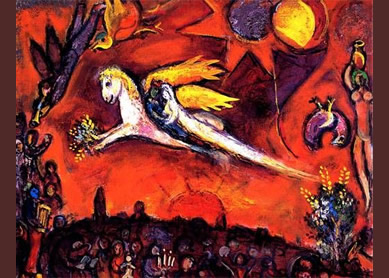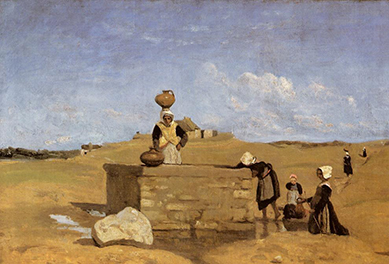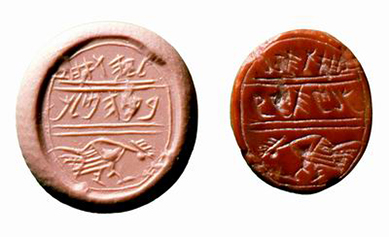The Song of Songs is a series of poems about human love written in the form of a dialogue between two lovers. The lovers are largely anonymous—a woman, the primary speaker who is referred to twice only as “the Shulammite” (Song 6:13), and a man who is understood to be Solomon (Song 1:1, Song 3:7) but never addressed as such. In this way their experience is specific but also archetypal. Throughout, the lovers speak to each other using vibrant imagery that richly evokes all the senses and powerfully conveys their love. They also have challenges, however, in the form of obstructions (Song 1:6, Song 2:15, Song 8:9), missed encounters (Song 3:1-2, Song 5:6-8, Song 6:1-2), and even violence (Song 5:7). Despite these, the overall tenor of the book is joyous and life-affirming.
The perception of the Songs of Songs as a story of human love is relatively recent. For much of its interpretive history, readers understood the book as an allegory for God’s relationship with Israel (Judaism) or Jesus’ relationship with the soul (Christianity). Interpreters were likely steered on these courses by the Song of Songs’ troubling erotic subject matter—that, and the fact that there is no explicit mention of God in the text, a factor shared with only one other biblical book (Esther).
What is love like, according to the Song of Songs?
For much of the Song of Songs, human love is an intimate affair, replete with personal references and endearments. The book does, however, culminate with a more abstract statement, which offers a universal lesson. The observation in Song 8:6-7 is a weighty one: love is as strong as death; passion is as fierce as the grave. (The repetition is intentional and typical of biblical poetry.) What does it mean for love and death to be compared in this way? Readers across the centuries have suggested that it is death’s gravity and finality that make it an optimal comparator; and yet, it is the tension between love and death that frequently tempts Western cultural imagination, as in the myths of Endymion and Selene and Orpheus and Eurydice, and more contemporary explorations, such as Shakespeare’s Romeo and Juliet or Paul Celan’s “Death Fugue.” As if unsatisfied with the perplexing comparison and shifting around for a more satisfying image, the poet provides another analogy, with yet another vivid and unexpected comparison: love is like fire—bright, intense, and even fierce.
In these striking poetic comparisons, which plumb the deep philosophical problem of how life-affirming love might resemble life-ending death, the poet reveals that he understands the futility of trying to reduce love to a simple definition. Whatever love is, the poet claims in the following verse, it is so potent that even a flood cannot consume it. So, the poet urges, in the form of a proverb, do not be tempted to trade it for anything, even great wealth. Of this, at least, the poet seems certain: something so intangible, so indefinable (in whatever form it takes—the Song of Songs does not commit, for example, only to married love), does not match the greatest things of the material world.
Does Song 8:6-7 refer to God?
Something else lurks in the comparison between love and fire. In the last part of Song 8:6, we encounter a strange term (Hebrew shalhebetyah), which may or may not contain a truncated version of the divine name Yah (hence, the suggestion would be something like “a flame of Yah[weh]”). Alternatively, this odd term might also simply mean an intensely burning flame. In either case, we are left with a puzzle. If the flame is burning brightly, why would a poet, in his grandest statement about love, stumble clumsily with “its flashes are flashes of fire, a brightly burning fire” (author’s translation), as if the thought were somehow unfinishable? Or, if this is the divine name, what are readers to make of the poet’s meaning here? What is a flame of Yahweh and how is it different from other flames? And how is it at all like love? Readers well intuit the gravity and complexity of these statements in Song 8:6-7, but in the end they are also left with the overwhelming mystery of love.
Bibliography
- LaCoque, Andre. Romance, She Wrote: A Hermeneutical Essay on the Song of Songs. Peabody, MA :Trinity Press, 1998.
- Munro, Jill M. Spikenard and Saffron: The Imagery of the Song of Songs. Sheffield: Sheffield Academic Press, 1995.
- Brenner, Athalya. Song of Songs. Old Testament Guides. Sheffield: Sheffield University Press, 1989.
- Exum, J. Cheryl. The Song of Songs. Philadelphia: Westminster John Knox, 2005.





